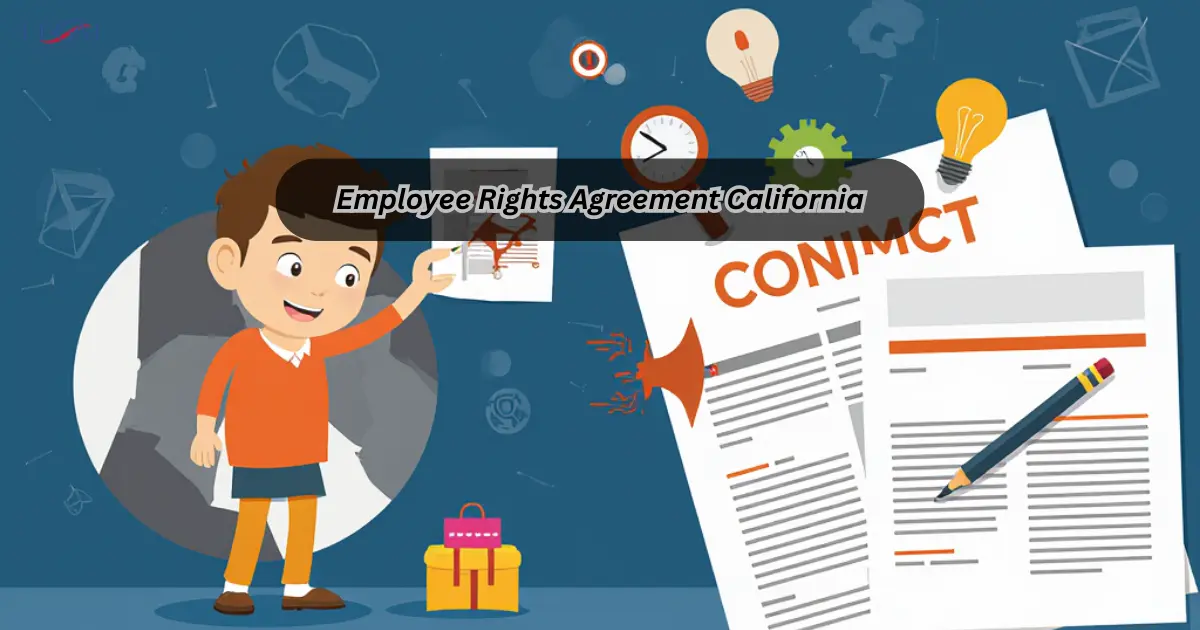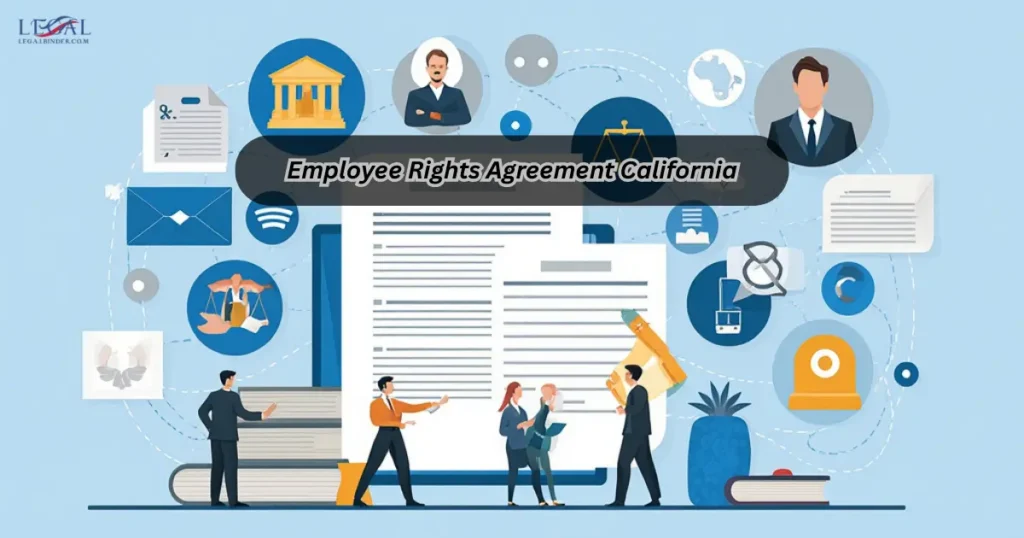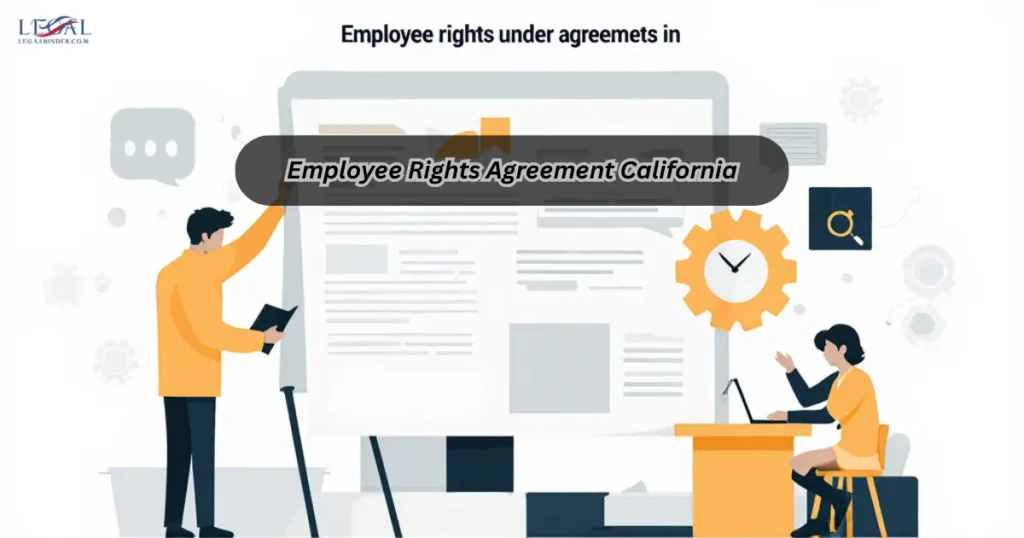Physical Address
304 North Cardinal St.
Dorchester Center, MA 02124
Physical Address
304 North Cardinal St.
Dorchester Center, MA 02124

When you sign an Employee Rights Agreement California, you are not just accepting a job offer—you are setting the foundation for your career, your income, and your workplace rights. Too often, employees rush through contracts without fully understanding what they mean, only to face challenges later. By understanding your employee rights under agreements in California, you give yourself the confidence to protect your future and make informed decisions.

This guide breaks down everything you need to know: the key elements of employee agreements, your rights under California law, and how to make sure your agreement works in your favor. For more employment law resources, visit our homepage.
California is an at-will employment state, meaning that either you or your employer can terminate the relationship at any time. However, employee agreements can create additional rights and responsibilities that protect both parties.
Learn more from the California Department of Industrial Relations: DIR Official Website.
Your contract must comply with California wage laws. This includes minimum wage, overtime pay, and prompt payment rules. See official resources: DLSE Wage FAQs.
Many agreements specify benefits like health insurance, retirement plans, vacation, and sick leave. California law requires paid sick leave for most employees.
Even if your contract doesn’t mention it, you have the legal right to a safe and healthy workplace under Cal/OSHA.
Contracts cannot override California’s strict anti-discrimination laws. Employers may not discriminate based on race, gender, disability, religion, or other protected categories.
You have the right to read, review, and negotiate the terms of your employee agreement before signing. Employers cannot pressure you into signing away legal protections.

Employers must ensure employee agreements comply with labor laws. This includes:
Learn more from the California Labor Commissioner’s Office: Labor Commissioner Resources.
No, most non-competes are unenforceable under California law, with very narrow exceptions.
No. If benefits are included in your signed agreement, your employer must provide them.
Clauses that violate California labor law are generally unenforceable. You may have grounds to challenge them.
Not always, but legal advice can help ensure your rights are fully protected, especially with complex agreements.
You can review official resources at the California DIR or the California Attorney General website.
Your employee rights agreement California is more than a formality—it’s a safeguard for your career, financial stability, and workplace well-being. By understanding the key rights and obligations in these agreements, you take control of your professional future.

Never sign in a rush. Always review, question, and if necessary, negotiate. Empower yourself with the knowledge and confidence to make your agreement work in your favor.
For more employment contract guides, visit our homepage and explore trusted state resources.